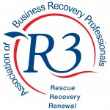Metal detecting on your farmland
The hobby of metal detecting is growing more and more popular; and not just with kids. In 2009 the Staffordshire Hoard was unearthed and subsequently purchased by a museum and gallery for £3.285million. Towards the end of 2016 a collection of gold jewellery (which is thought to be the earliest Iron Age gold work ever discovered in Britain) was detected on a dairy farm in Staffordshire.
Many enthusiasts are motivated by an interest in history, but of course, there is the added incentive of finding something of value. With the Staffordshire discovery, more farmers and landowners may be approached by metal detectorists for permission to access their land. With this in mind, here are some top tips and points for consideration:
Advantages to allowing detectorists on your land
- You may have the opportunity to learn more about the history of the land you own.
- The presence of detectorists may discourage trespassers, flytippers etc.
- There will be more people who might notice and alert you to things such as sick or straying livestock.
- Detectorists may clear away unwanted rubbish from your land.
- Landowners can usually charge for access, although this is quite a small payment. Some landowners allow rallies where each person donates a set amount which is then donated to charity.
- If treasure is found, landowners are usually entitled to a share of the reward.
Disadvantages to allowing detectorists on your land
- When you allow one person, there is always the risk that other will follow. Of course, unless you have given permission, they will be trespassing, but this can be a nuisance to deal with.
Is permission needed?
- Permission is needed from the landowner before anyone (metal detectorists included) can enter private land.
- Tenants will also need to check with their landlords before allowing others access for metal detecting or they risk breaching their tenancy agreements (some tenancies specifically exclude the tenant from granting consent for metal detecting).
- If there is a Scheduled Monument or a Site of Specific Interest, the permission of Natural England will be needed before a metal detector can be used.
- If a person does not have permission and trespasses on your land, the first thing to do is ask the person to leave. In most situations, this will resolve the issue; however if a person is persistently trespassing, it is advisable to take a friend or employee with you when asking them to leave and ensure that a note is made of any damage/vehicle registrations/items/objects taken from the land. If necessary, these should be reported to the police.
Do you need a formal/written agreement?
- It is advisable for a landowner to have a written agreement in place covering who has permission, what they can/cannot do (e.g. drive on fields), how deep they can dig for finds, reporting finds and objects which are not defined as “treasure”.
- You should consider the practicalities of access whether or not you have a written agreement, such as whether they should notify you before they arrive/on arrival and whether there are specific areas that they should avoid (e.g. if allowing people to shoot, if crops have been newly planted).
Treasure
- Potential treasure finds (gold and silver objects, groups of coins more than 300 years old and groups of pre-historic base-metal objects) must be reported to the local coroner within 14 days; the coroner will then hold an inquest to determine whether the find is treasure.
- If a find is treasure, museums are given the opportunity to acquire the treasure in line with the valuation made by the Treasure Valuation Committee.
- The reward from the treasure is then split between the finder, landowner and/or tenant. The split starts with a presumption of a 50:50 split between the landowner and the finder, but a different split can be agreed. Any alternative splits should be made in writing, as otherwise it will be almost impossible to prove and the default position of 50:50 will be followed.
- Failure to report treasure finds is illegal and carries a maximum penalty of 3 months imprisonment and/or a fine of up to £5,000.
Insurance
- If you wish to allow metal detecting on your land, it is advisable to check that you are insured against any potential claims as the detectorists will then be seen as lawful visitors for the purposes of the Occupier’s Liability Act 1957.
- Keep in mind that membership of some metal detecting clubs comes with civil liability insurance and some permits will require the detectorist to prove that they are adequately insured.
Rebecca McCarthy is a trainee solicitor at Barker Gotelee.
Solicitors in Suffolk – for more information on our range of legal services, please call the team on 01473 611211 or email bg@barkergotelee.co.uk









